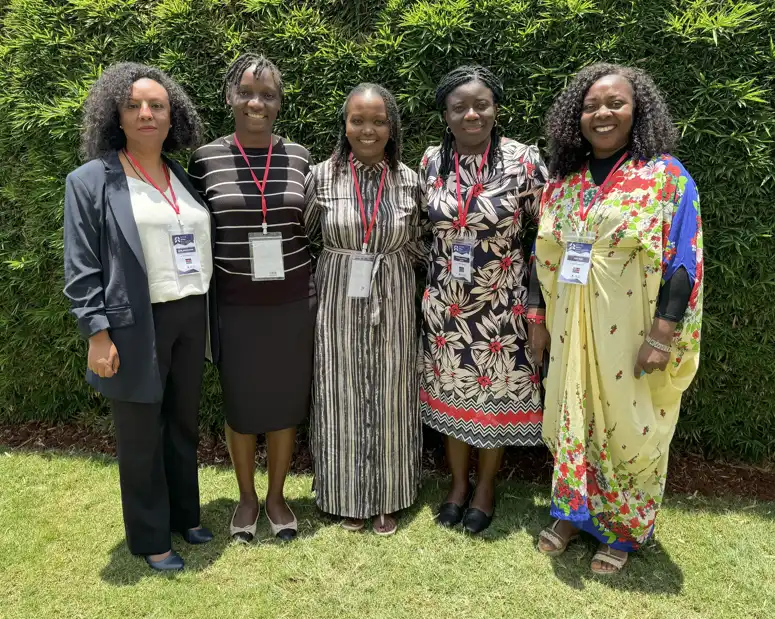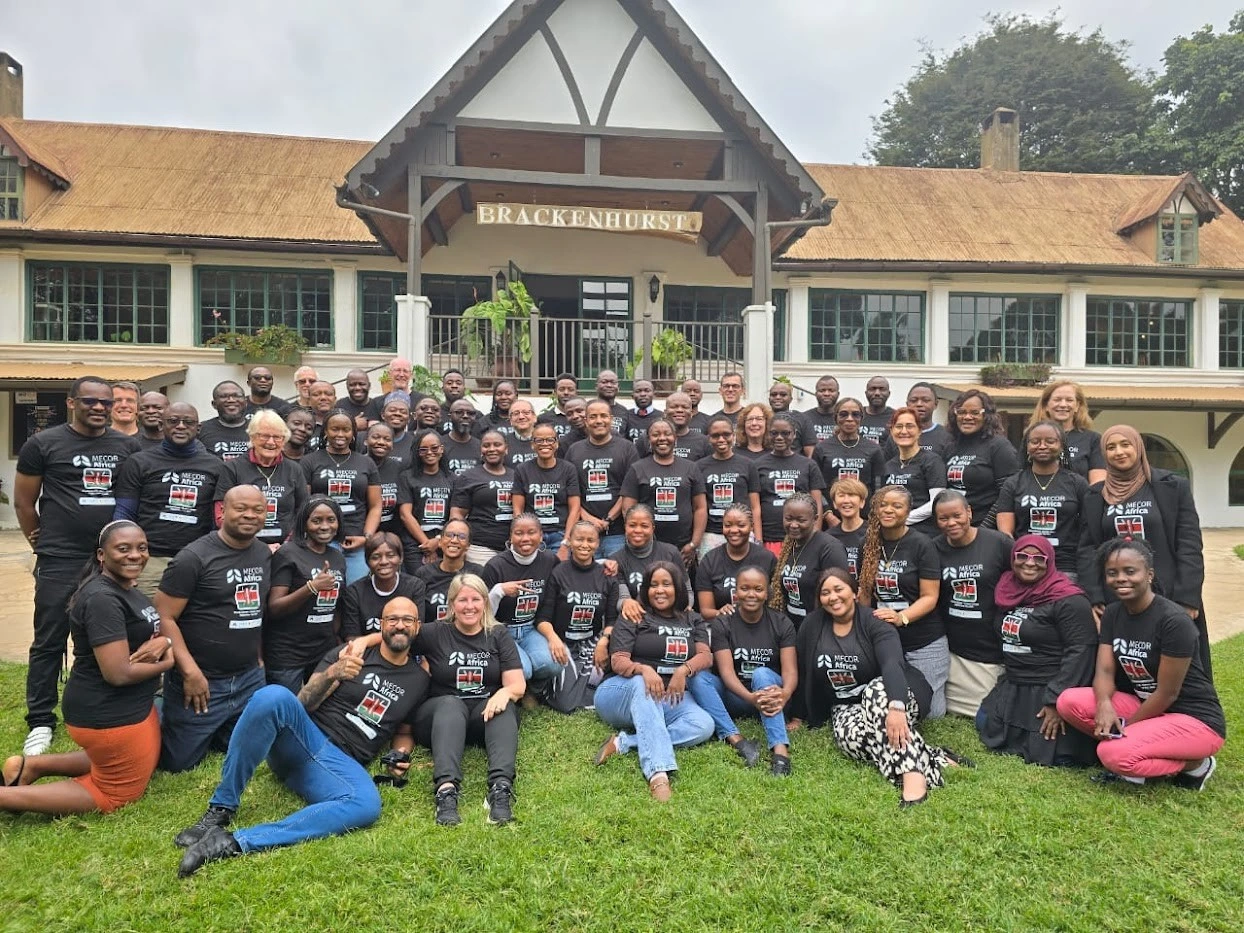PATS LUNG HEALTH INITIATIVE 2022 REPORT
World Lung Day is marked on 25 September each year to raise awareness and advocate for improved care for respiratory diseases globally. PATS, alongside other members of the Forum of International Respiratory Societies (FIRS), encourages hosting local advocacy events on this day. In this regard, PATS runs the program, PATS Lung health Initiative (PALI), with support from the European Respiratory Society, to raise awareness and advocate for improved lung health in Africa. PALI is an annual award designed to support World Lung Day advocacy programs that promote lung health in Africa that was successfully launched in 2022. This award is provided in partnership with the European Respiratory Society (ERS).
PATS members can apply for PALI funding to conduct programs that promote lung health in their locality. Programs can range from education of healthcare workers and the general population, free lung function testing, free respiratory health services, stakeholder engagement, and fund raising for lung health.
PALI EVENTS 2022
In 2022, the following events were hosted.
KENYA
Screening for TB and TB ACF sensitization at Kiambu Prison, Kenya
Provided brief health education on TB prevention and treatment for all prisoners from each of the 7 cells. Screened 638 prisoners. All prisoners with presumptive TB were referred to the lab desk for sputum collection and their details entered in the presumptive TB register. All the samples collected were sent to the Kiambu level 5 hospital gene Xpert hub. Nutritional assessment performed with those identified as malnourished referred for nutritional intervention. Prison officers sensitized on TB active case finding, infection, prevention, and control measures.
MALAWI
Low-cost pulmonary rehabilitation to improve respiratory function of people on Tuberculosis treatment in Mwanza, Malawi
20 participants were taught about tuberculosis, how it is diagnosed, the treatment available and post-TB disease, and common misconceptions about the condition.
NAMIBIA
Exercise the underutilised drug in post Tuberculosis sequela healing
22 patients on TB treatment and 6 Ministry of Health staff members participated in training about the role of exercise in the management of TB and post-TB lung disease. Education talk focused on the symptoms the patients might still present with after completing treatment, effect of these symptoms on long term outcomes like respiratory function, exercise endurance, mental health and quality of life. Assessments were done including: spirometry, dynamometry for grip strength measurement, BMI, use of standardized outcome measures like CAT, mMRC, Patient specific Functional Questionnaire, EQ 5D to assess symptoms, quality of life and functional status. Played games such as balloon blowing (breathing exercise) and races.
NIGERIA
Finding Missing and Missed tuberculosis cases through active case finding in the community
Recruited and trained 20 volunteers from 5 hot-spot communities. Health education provided to community in local language. Free screening and testing with a sputum test for community members, with sputum specimen collected from 99 participants. Positive active TB cases linked to healthcare facilities for treatment. On 25 September, made an appearance on the national television to talk about tuberculosis and smoking.
Exercise Intervention in Promotion of Respiratory Health among Artisans in Ile-Ife
Lectures were delivered to 288 artisans (comprising auto mechanics, commercial drivers, vulcanizers, tailors, carpenters, drivers, painters, and plumbers) on how to prevent respiratory disease including advice to stop smoking and using tobacco; and to refrain from using firewood for cooking. They were also encouraged to use nose masks when dealing with particles and to engage in physical exercise to promote their cardiorespiratory fitness.
Their lung function, blood pressure and fitness levels were assessed using standard protocols. A football competition was organized among the artisans. The final took place on 25 September, attracting a larger audience, and was used to provide public health messages on the importance of respiratory health.
Promoting Physical Health of Post Tuberculosis (P3TB) adults in Kano state
12 final year student volunteers were recruited and trained. Health talks and flyers designed for post-TB patients and distributed in local languages created awareness on impact of pulmonary TB on lung health, exercise and physical activity recommendations, nutrition, and achieving better life for post-TB patients. Health screening provided. The event was covered by Arewa Radio Kano.
Training health care providers at the Directly Observed Therapy Short-course (DOTS) treatment centers about Post TB lung Disease (PTBLD), Lagos
Trained 70 doctors, nurses and community health extension workers who manage and or work at various DOTS treatment centers. Provided seasoned lectures on the definition, burden, diagnosis and management outlines for PTBLD. The LUTH experience in managing patient with PTBLD was shared. Provided theoretical and demonstration of practical approach to sputum induction for pulmonary TB diagnosis.
ZAMBIA
World Lung Day 2022 Awareness Campaign
A lung health awareness campaign in Lusaka targeting informal small-scale quarry and construction workers at risk of occupational lung disease. Pre-event campaign sensitization included a newspaper article and radio interview. A 30 minute march took place followed by a speech highlighting the unacceptably high burden of occupational lung diseases in Zambia and activities including free lung function testing (spirometry), screening questionnaires for risk and symptoms of respiratory diseases, sensitization activities of high-risk workers (quarry workers, welders, carpenters etc) and distribution of free respirators. A total of 129 members of the public were screened and 88 people had spirometry done.
ZIMBABWE
Induced sputum training
26 participants from the 7 major public hospitals in Zimbabwe attended the training physically while 17 participants attended online. The training entailed a pre-training questionnaire, a general introduction to diagnosis of TB in children and a discussion on the limitations of clinical and radiological diagnosis of TB. Specific training on microbiological diagnosis which involved theoretical and practical sessions on sputum induction took place.
Full length reports on each activity are available here.


